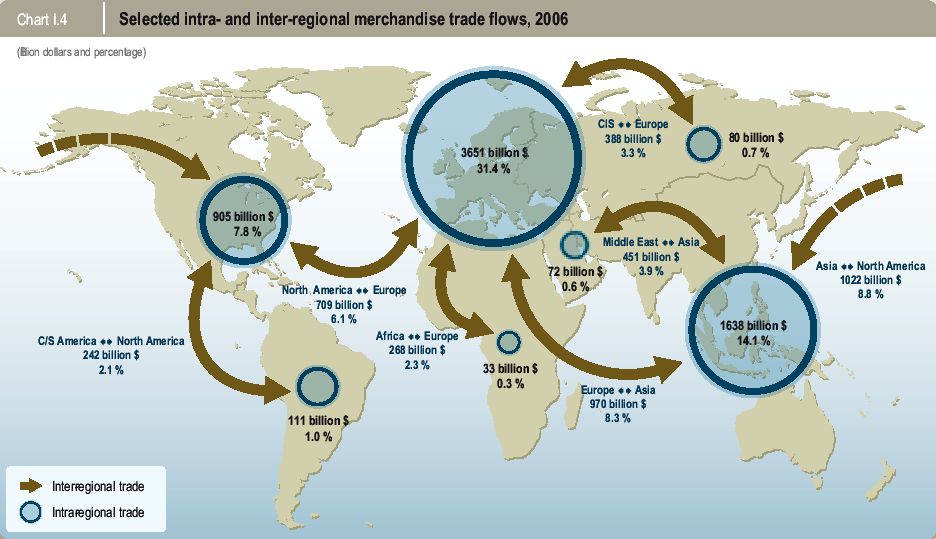
Note: this is a cross-post from The Realignment Project. Follow us on Facebook!
Introduction:
In about two years of blogging at TRP (and another two years’ policy-blogging elsewhere), I’ve never discussed trade. It’s not because it’s unimportant, because trade is clearly a major issue within economic policy and politics, but rather because of when I came of age politically. In 2001 student politics, the free trade vs. anti-globalization/protectionism debate seemed remarkably deadlocked and somewhat sterile. Twin camps of policy contenders required allegiance with either side, and I found myself unhappy with the analysis and debate and more drawn to questions of domestic economic policy.
However, in the wake of the Great Recession and the increasingly-urgent need to reassess the structure of the U.S economy, I can’t avoid it any longer. The trade question isn’t the whole of our economic problems, I think it can be exaggerated in a way that obscures a more important class conflict inside nations. And yet, the global balance of trade – between Germany and the rest of Europe, between China and the U.S, and so on – is clearly out of whack.
Recent comments